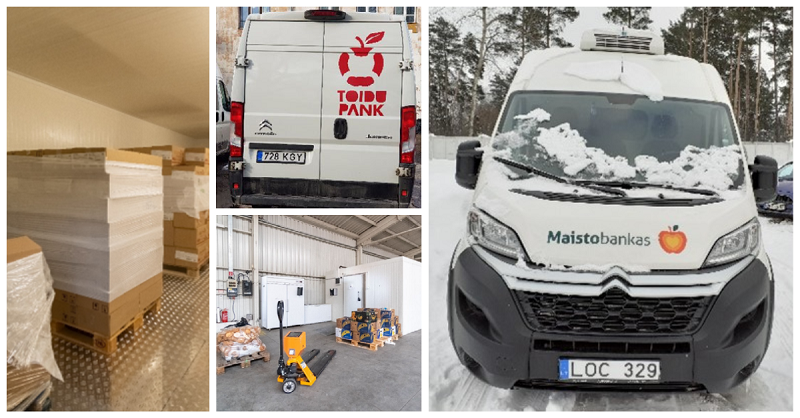In 2020, the Elanco Foundation stood in support of the European Food Banks Federation and its network of food banks in 29 European countries, donating $150.000 USD to support increased need for food redistribution.
Since the beginning of the COVID-19 pandemic, FEBA members have worked tirelessly to get food from the food supply chain and ensure its safe delivery to charities helping those most affected by COVID-19 crisis. In 2020, FEBA members redistributed food to 48,126 charitable organizations helping 12.8 million people in need, a 34.7% increase in comparison with 2019.
The donation awarded to FEBA was intended to supply high-quality, nutritious, animal-based food, a very important part of a healthy and balanced diet. Most people in vulnerable communities, especially in poorer European countries, often have no access to such food.
“I am very proud how, in collaboration with our community partners, the Elanco Foundation was able to impact the livelihoods of thousands of families that would otherwise not have had food on the table in these difficult times of the pandemic,” shares Jared Skok, Executive Director of the Elanco Foundation. “But the fight is far from over. Going forward, the Elanco Foundation board and I pledge to continue to monitor emerging food security issues around the globe and take action to support those in need.“
Allocating the funds across the network of Eastern European food banks
In July 2020, FEBA promoted a Call for Proposals open to all members with the purpose of allocating the generous donation. FEBA received 13 proposals from 13 members. Ultimately, the Elanco Foundation’s donation was distributed among FEBA members in four countries: Ceská Federace Potravinovych Bank in Czech Republic, Toidupank in Estonia, Food Bank Greece in Greece, and Maistobankas in Lithuania. All four proposals focused on immediate and long-term solutions to increasing access to high-quality, nutritious, animal-based protein (e.g. meat, milk, dairy, eggs and poultry).
Funds were used to support capacity expansion and cold storage needs of selected locations
In Czech Republic, the grant improved the efficiency of Ceska Federace Potravinovych Bank and supported the set-up of cold rooms in Prague, South Moravia and North Bohemia. In Prague, it was possible to double the capacity of cold storage which is instrumental in redistributing food across the entire region, while in South Moravia and North Bohemia, the donation allowed to ramp up capacity more than threefold. These food banks increased the amount of distributed animal-based protein and fresh food up to 504 tons a year, or more than 42 tons of these products per month. Moreover, the storage capacity of the food banks increased by 726% across the three regions compared to a nationwide average increase of 48%..
In Estonia, the purchase of a refrigerated van was fundamental to provide perishable foods like milk, meat, eggs and fish to people in need. As Toidupank faced a 30% increase of beneficiaries in the poorest region of Valga County, the food bank operators needed to transport more food out of the bigger towns, such as Tartu (100 km) and Tallin (250 km), into rural areas.
In Greece, the installation of two cold rooms significantly increased the redistribution of highly requested animal-based food items in Thessaloniki. Now the Thessaloniki Food Bank can manage and move seven times more food, especially diary products, cold cuts, frozen meat and fish, and meet the needs throughout Macedonia.
Finally, part of the funds were used to purchase a new van with refrigeration equipment for Maistobankas in Lithuania,replacing the old vehicle and ensuring continuity of the food distribution activities in the region. Indeed, the van is essential to allow Food Bank operators to pick up frozen meat and fish as well as dairy products from a retail chain and quickly redistribute those items to charities that assist people in need in remote areas.




